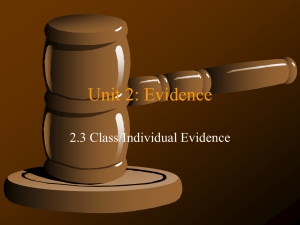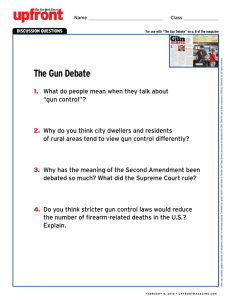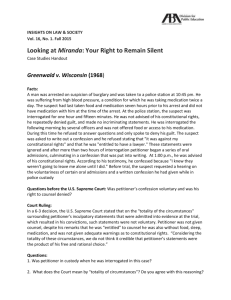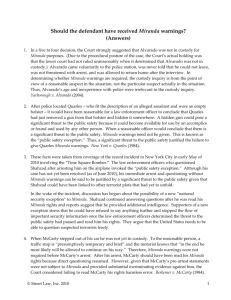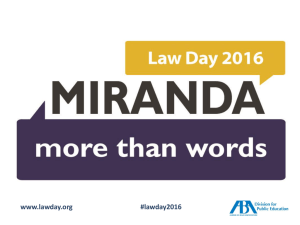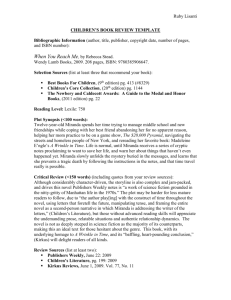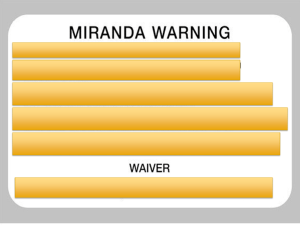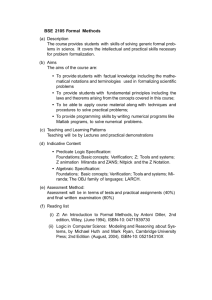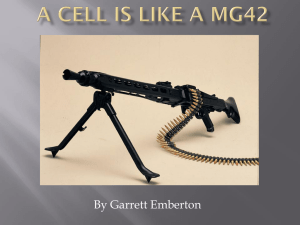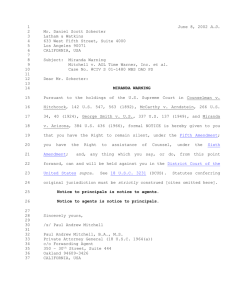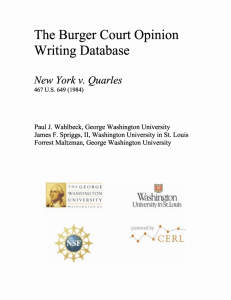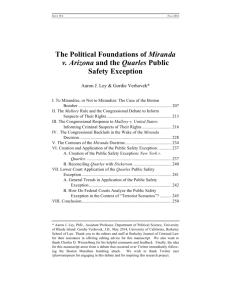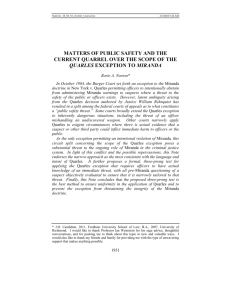NEW YORK v. BENJAMIN QUARLES
advertisement
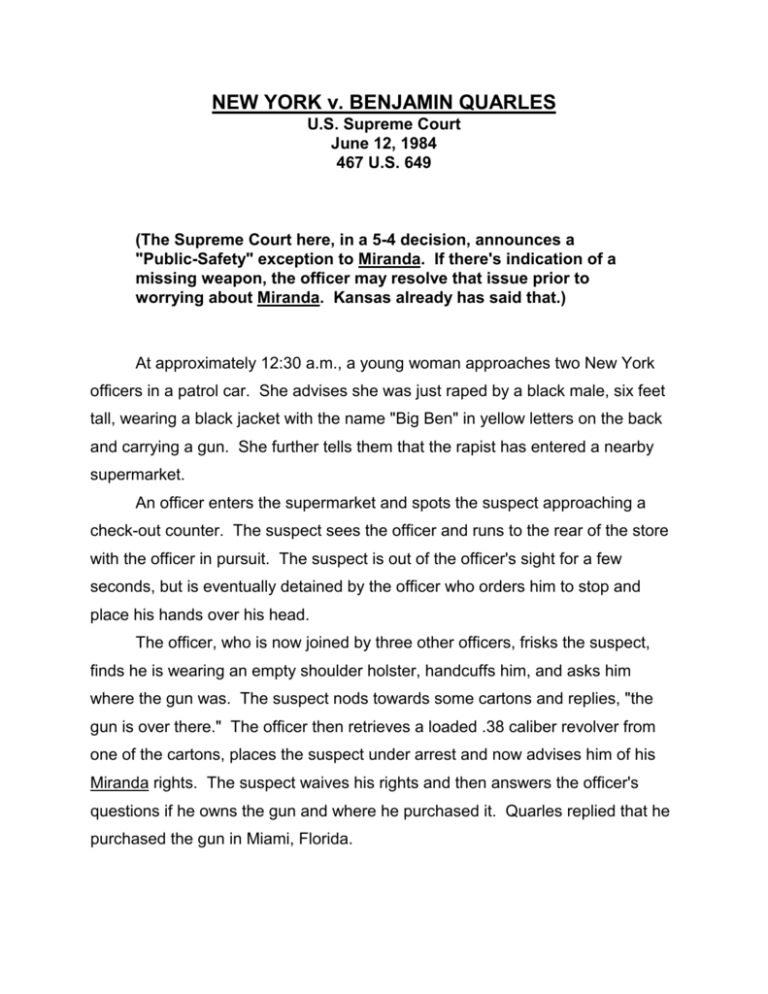
NEW YORK v. BENJAMIN QUARLES U.S. Supreme Court June 12, 1984 467 U.S. 649 (The Supreme Court here, in a 5-4 decision, announces a "Public-Safety" exception to Miranda. If there's indication of a missing weapon, the officer may resolve that issue prior to worrying about Miranda. Kansas already has said that.) At approximately 12:30 a.m., a young woman approaches two New York officers in a patrol car. She advises she was just raped by a black male, six feet tall, wearing a black jacket with the name "Big Ben" in yellow letters on the back and carrying a gun. She further tells them that the rapist has entered a nearby supermarket. An officer enters the supermarket and spots the suspect approaching a check-out counter. The suspect sees the officer and runs to the rear of the store with the officer in pursuit. The suspect is out of the officer's sight for a few seconds, but is eventually detained by the officer who orders him to stop and place his hands over his head. The officer, who is now joined by three other officers, frisks the suspect, finds he is wearing an empty shoulder holster, handcuffs him, and asks him where the gun was. The suspect nods towards some cartons and replies, "the gun is over there." The officer then retrieves a loaded .38 caliber revolver from one of the cartons, places the suspect under arrest and now advises him of his Miranda rights. The suspect waives his rights and then answers the officer's questions if he owns the gun and where he purchased it. Quarles replied that he purchased the gun in Miami, Florida. In the subsequent prosecution for criminal possession of a weapon, the judge finds Quarles was "in custody" for Miranda purposes during the supermarket questioning and, since no Miranda warnings were given to him at the outset, the judge excludes the statement, "the gun is over there" and the gun itself. He then excludes the defendant's statements about ownership of the gun and place of purchase, as evidence tainted by the prior Miranda violation. Two higher New York appellate courts agreed with that ruling. Here the U.S. Supreme Court reverses those rulings and gives us a new exception to Miranda, by holding that "... overriding consideration of public safety justifies the officer's failure to provide Miranda warnings before he asked questions devoted to locating the abandoned weapon." Here Quarles was surrounded by four police officers, guns drawn, and was handcuffed when the questioning at issue took place. Certainly there was custody. "We agree that respondent was in police custody because we have noted that the ultimate inquiry is simply whether there is a formal arrest or restraint on freedom of movement of the degree associated with a formal arrest.... Officer Kraft asked only the question necessary to locate the missing gun before advising respondent of his rights. It was only after securing the loaded revolver and giving the warnings that he continued with investigatory questions about the ownership and place of purchase of the gun... We conclude that the need for answers to questions in a situation posing a threat to the public safety outweighs the need for the prophylactic rule protecting the Fifth Amendment's privilege against selfincrimination." (Bottom line? The Kansas Supreme Court in State v. Roadenbaugh, 234 Kansas 474 (1983) delivered a very similar decision.) -2-
